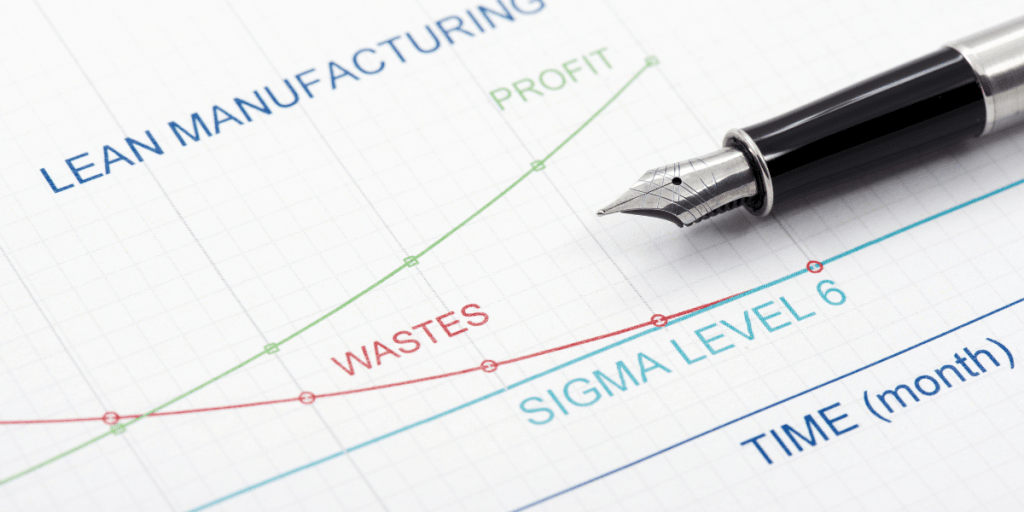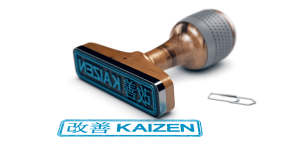In today’s competitive business environment, achieving optimal efficiency is paramount for success. One methodology that has proven successful for businesses across various sectors in achieving this goal is the Lean Methodology. This management philosophy, derived from Japanese manufacturing, is centered on creating value for the customer by optimizing resources and eliminating waste.
Understanding the Basics of Lean Methodology
Lean Methodology, also known as Lean Thinking or Lean Management, is a systematic approach to identifying and eliminating waste or non-value added activities in business processes. The ultimate goal of Lean is to improve the quality of the product or service to the customer, while minimizing cost, space, time, and effort. Lean Methodology is based on five fundamental principles: defining value from the customer’s perspective, identifying the value stream, enabling the flow of value, allowing the customer to pull value, and pursuing perfection.
The first principle, defining value, highlights that value is determined by the customer’s needs for a specific product or service. The second principle, identifying the value stream, involves mapping out the process by which a product or service is delivered to the customer, with an aim to eliminate steps that don’t add value. The principle of enabling flow emphasizes the need to ensure that work processes flow smoothly without interruptions or bottlenecks. The principle of allowing customer pull states that production should be driven by customer demand rather than by forecast. Lastly, pursuing perfection entails continuous improvement and striving for excellence in all aspects of the business.
Recognizing the Importance of Lean Methodology in Business
Adopting a Lean Methodology in business has become increasingly important due to the myriad of benefits it offers. It fosters a culture of continuous improvement, encourages employee engagement, and facilitates better decision-making. Lean enables businesses to respond quicker to changes in the market, increases productivity, and enhances the quality of products or services. Furthermore, it helps in reducing operational costs by eliminating waste and inefficiency.
Lean Methodology is not just about cost reduction. It is about creating a robust and sustainable system that can adapt to change and continuously improve. By considering the value from the customer’s perspective and removing non-value activities, businesses can concentrate resources on what truly matters and contributes to their competitive advantage.
Identifying Areas of Waste in Your Business Processes
Identifying waste in business processes is a critical step in implementing Lean Methodology. Waste, in Lean terms, can be anything that does not add value to the customer. This can include overproduction, waiting time, unnecessary transportation, over-processing, excess inventory, unnecessary movement, and defects.
Overproduction is the production of products or services ahead of demand. Waiting time refers to any idle time in the process where work is not being done. Unnecessary transportation involves the unnecessary movement of materials, products, or information. Over-processing denotes performing work that is not value-adding from the customer’s perspective. Excess inventory is any supply that goes beyond supporting the immediate need. Unnecessary movement refers to any motion workers have to make that does not add value. Defects are products or services that fail to meet quality standards.
Implementing Lean Methodology for Process Improvement
To implement Lean Methodology for process improvement, businesses first need to form a Lean implementation team. This team is responsible for identifying waste, brainstorming solutions, and implementing changes. The process begins with value stream mapping, a tool used to visualize the current state of the process and to identify areas of waste and inefficiency.
Once the waste has been identified, the team employs various Lean tools and techniques like 5S (Sort, Set in order, Shine, Standardize, and Sustain), Just-In-Time (JIT), and Kanban to eliminate it. The team then develops a future state map and creates an action plan to achieve it. The implementation of Lean Methodology requires a top-down approach, with everyone in the organization understanding and committing to Lean principles.
Streamlining Operations through Lean Methodology
Streamlining operations through Lean Methodology involves eliminating waste, optimizing processes, and continuously improving. This can be achieved through standardization, which involves creating a set of rules or guidelines for processes to ensure consistency and minimize variation.
Visual management is another effective tool for streamlining operations. It allows everybody to understand the status of the operations at a glance. Lean Methodology also encourages the use of cross-functional teams to solve problems, which leads to more innovative solutions and stronger ownership of the process.
Measuring Success with Lean Methodology Implementation
Measuring the success of Lean Methodology implementation involves evaluating the resulting improvements in efficiency, productivity, cost, and customer satisfaction. Key Performance Indicators (KPIs) should be established and monitored to assess progress towards the goals.
Common KPIs used to measure Lean implementation success include lead time, process cycle efficiency, first-pass yield, and inventory turnover. It’s also essential to measure employee engagement and satisfaction, as Lean Methodology is not only about improving processes but also about creating a culture of continuous improvement.
Case Studies: Successful Application of Lean Methodology
There are numerous case studies showcasing successful application of Lean Methodology. For instance, Toyota, from which Lean originates, is one of the most successful companies in implementing Lean, reflected in their high quality and efficiency.
Another example is General Electric, which used Lean Methodology to eliminate waste and improve processes in their manufacturing facilities. Through Lean, they were able to reduce cycle time by 50%, inventory by 30%, and defects by 50%.
Future Perspective: Scaling Your Business with Lean Methodology
Looking to the future, Lean Methodology provides a solid foundation for scaling your business. It helps in creating efficient and scalable processes that can accommodate growth without a corresponding increase in waste or inefficiency. Lean promotes a culture of continuous improvement, which is vital in the fast-paced and dynamic business environment.
As businesses grow, the complexity of their operations often increases. Lean Methodology helps in managing this complexity by streamlining processes, removing unnecessary steps, and focusing on value-adding activities.
In conclusion, Lean Methodology has immense potential for enhancing business success. By focusing on value creation for the customer and eliminating waste, businesses can significantly improve their efficiency, customer satisfaction, and bottom-line results. Whether you’re a small start-up or a large corporation, Lean offers a versatile and effective approach to maximizing your business potential. Embrace Lean, and embark on a journey of continuous improvement and sustainable success.









